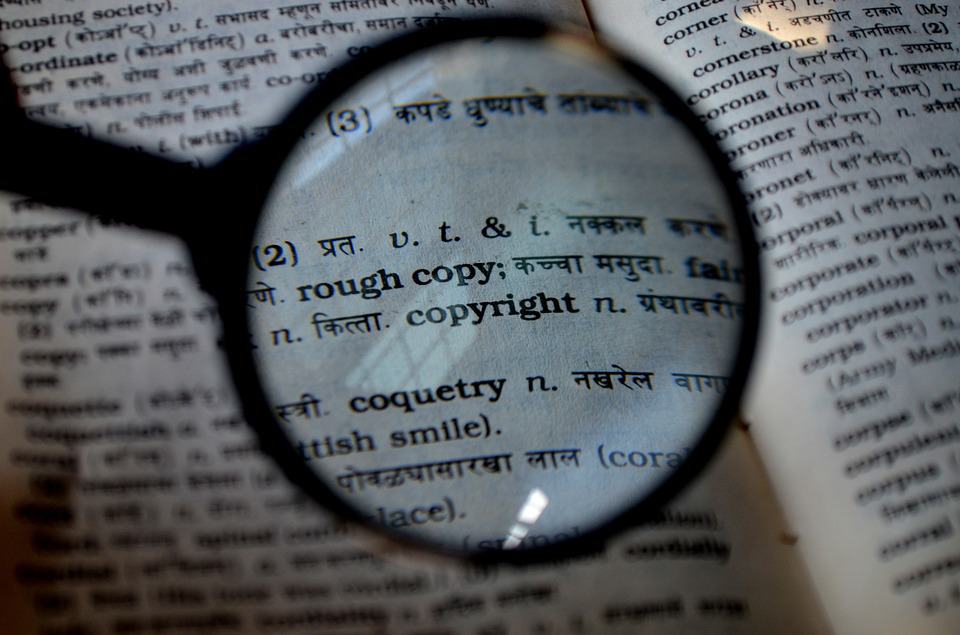This is an important question whether you intend to hire a freelancer to work for you or whether you’re working for someone else as a freelancer. Who owns the freelance work output when the job is done?
Well, the answer is – it’s complicated. In most cases, the contract ought to stipulate who owns the freelance work. If the contract does not stipulate which party to the freelance agreement is the owner of the intellectual property, then things are more complicated still with the default position being – the freelancer owns the work.

Table of Contents
The Important Of Intellectual Property
Intellectual property or IP is anything that is created with the mind. There are different forms of IP and the most common is copyright. Copyright applies to the execution of ideas. It comes into being at the moment of creation and is automatically assigned to the creator of the work.
The other two types of IP are covered by patents and trademarks. A patent applies to the potential application of an idea. A trademark is an asset owned by a brand that describes a product, a brand or a series of brands or products.
We can exempt patents and trademarks from this discussion because you must register these types of IP and pay to do so. The ownership of these kinds of IP are defined as part of the registration process. You don’t need to worry about who owns them because it says so on the paperwork.
So, it is really only copyright that we need to talk about when we wonder “who owns freelance work?”
Copyright Is An Automatic Right

When copyright is granted it is granted to the creator of the work. It is not granted to the person or business which pays for that work.
Simply put, that means in most cases if you don’t stipulate in the contract what will happen to the copyright of any work created – the freelancer will own the freelance work product.
This is true even if you have paid them to create the materials.
The main exception to this is if the freelancer’s services are obtained in the United States under a “work for hire” agreement. In this specific set of circumstances, the “work for hire” arrangement assumes that the person who is paying for the work, owns the work.
Under a “work for hire” agreement, as long as the freelancer is paid by the business contracting them – the copyright transfers to that business. If there’s no pay, however, the copyright still remains with the freelancer.
Yes, That’s Right – Copyright Does Not Automatically Transfer To The Client Of A Freelancer
Many clients are under the mistaken belief that the act of paying a freelancer means that they own the work product but without a contract which defines what happens to the IP, they are not the owner.
In fact, while it might be reasonable to assume that they are paying for the use of the work product (as opposed to total ownership) even this is not the case – the work product and its copyright still belongs to the freelancer.
They could, in theory (though we’ve never come across this in practice) demand that you stop using their work at any point in time.
The can (and we have seen this) also use the work in other projects or in their portfolio without consulting you at all. That’s because as far as the law is concerned – it’s their work. They don’t need to talk to you about how they use it.
So, without a contractual clause to the contrary – you’re compensating the freelancer for creating a product, but you have no rights to that product or its continued use in any circumstances. Ouch, right?
Why You Shouldn’t Demand All Rights To A Freelancer’s Work

We could also have called this section; “why freelancers shouldn’t surrender all rights to their work.”
What you should be looking for are two things:
- An indefinite license to use the work for your business in the way that you want to. This is pretty important and it’s fair. If you’re paying a freelancer to create something for you, it ought to serve you as long as you need it to. No freelancer should object to this – unless they are using other copyright materials, to create the work, which have a limited license term (think music for a video which might have a stipulation regarding the number of views or length of time it can be used for) in which case the license should last as long as the shortest license incorporate in the work. After this, you may need to renegotiate.
- A guarantee that the work will not be used in competition with your business or its interests – there’s no reason that your freelancer shouldn’t use your logo in their portfolio or that they shouldn’t produce a similar (though not identical) logo for another client in a different business area. There are some pretty clear reasons they shouldn’t make an identical logo for your biggest competitor.
It is also worth noting that in general terms – it’s reasonable to ask the freelancer for a license to the finished product but it’s not usually done for you to obtain licenses to the individual parts of that product.
For example, a freelance photographer will normally sell you edited final images in a JPEG format. They will not standardly deliver RAW files (the images that came out of camera) or allow you to edit them yourself.
You should discuss the IP with your freelancer and look to reach an agreement that offers a fair deal to your business in line with the standard terms of the freelancer’s market.
As a writer, I regularly sell the whole copyright to pieces to my clients. That’s because there’s not much market for recycled writing in the niches they work in and because it would destroy their credibility as the “named author”. They pay a slight premium for this compared to the fee they would pay for a license to use the work.
This suits my needs and the client’s needs. I know other writers won’t work like this and insist on licensing their work because it better fits their profile. This is fine, there are plenty of clients who don’t need all the rights to the work they are provided too.
What Should You Write In A Contract?
You don’t need a lawyer to write a contract and unless the value of the service is exceptionally high – you probably won’t want to get one involved either.
When it comes to IP then you just want a simple statement of what the client is allowed to do with the IP and what rights, if any, the freelancer will retain to the work.
You must ensure that your contract is signed (either physically or virtually) prior to work commencing and certainly prior to paying for any work.
If the contract isn’t signed, then it’s fair to say that it’s not valid and then you’re back to square one with your freelancer retaining all the rights and you ending up with none.
Conclusion
It’s simple; the default position is that a freelancer owns the copyright to their work unless you have a contract with them that stipulates that the rights are being transferred in whole or in part.
There is also an exemption for copyright transfers automatically if the freelancer is working under a “work for hire” agreement in the United States.
